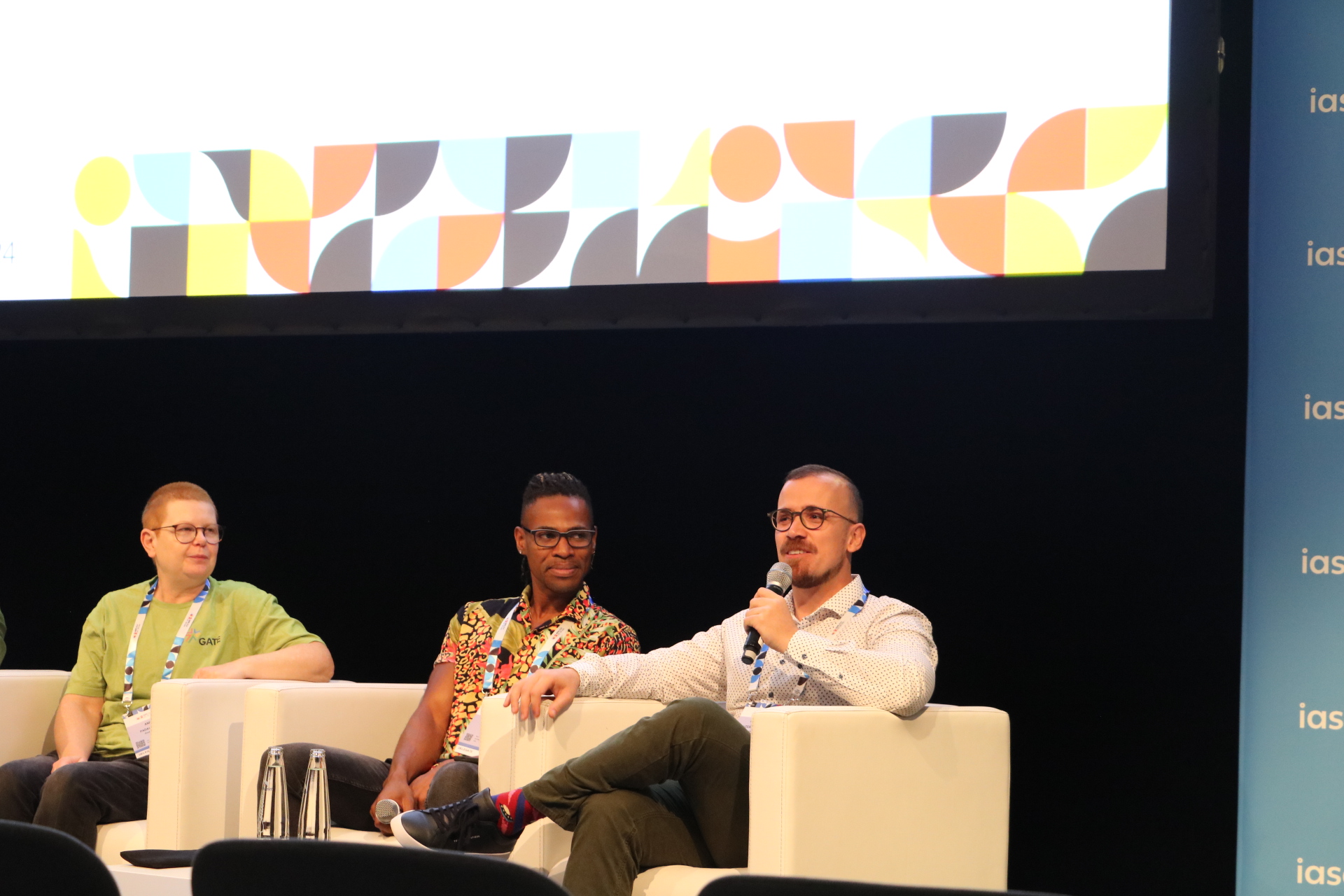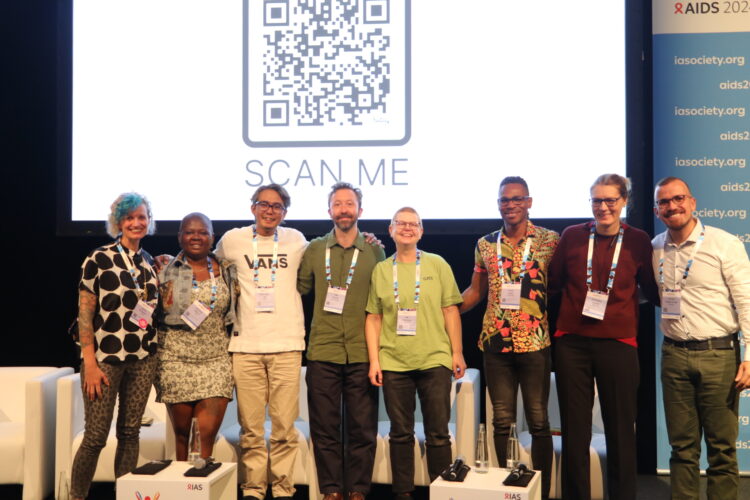Over the past 40 years, the journey of the HIV movement has demonstrated the power of community-led initiatives and innovative practices, such as community-led research, advocacy campaigns inclusive of marginalized communities and the development of accessible language versions of technical guidelines.
In 2022, GATE, GNP+, Y+ Global and ICW Global, along with key population networks including MPACT, INPUD and NSWP, launched the Future of AIDS Movement initiative which aimed to strategize beyond 2030. In 2023, this initiative held community consultations to gather key populations and other affected communities’ perspectives on how to build a stronger and more sustainable HIV response, resulting in the Future of AIDS Movement – Community Consultations Report.
Presented during the session, the report highlights the perspectives of communities affected by HIV. The future of the AIDS movement stands at a critical juncture, with the findings demonstrating an urgent need for decriminalization, community-led initiatives, and unity among key populations. The discussions revealed significant barriers imposed by funders that hinder collaborative efforts within these networks, with a call for learning from other movements by forming strategic partnerships and advocating for better funding practices in order for the movement to continue to drive positive change.
The findings showed that criminalization of HIV and HIV-related issues continues to stigmatize and marginalize affected populations, obstructing effective health interventions and perpetuating stigma and discrimination. A shared concern amongst speakers was how communities can thrive in countries with criminalizing laws and how they can efficiently and effectively obtain funding. However, these were not the only concerns raised during the session.
“The detrimental role of donors in imposing barriers upon key population networks and communities is of critical concern to the movement”, stated Aditia Taslim from the International Network of People Who Use Drugs (INPUD). He emphasized an urgent need for a reassessment of funding practices, as current models are pitting organizations against one another.
This sentiment was echoed by Thomas Brigden, representing the Elton John AIDS Foundation. He stated, “donors need to change the focus from measurement to contribution,” and to place more emphasis on what communities are actually achieving. He highlighted the Robert Carr Fund and Love Alliance as exemplary funding models that prioritize community contributions over competition.
To diversify the funding obtained for the movement, Anil Padavatan, GATE’s Health Lead, stressed the importance of partnerships with the sexual and reproductive health rights movements. He warned that the “anti-rights movements are attacking everyone’s bodily autonomy,” not just that of trans people, and emphasized that everyone should have access to life-saving sexual health information. Additionally, Anil urged “the trans-led HIV movement to build alliances with climate justice initiatives,” as trans people and trans-led organizations are among the most vulnerable to climate change impacts.

The Global Philanthropy Project Report showed that anti-rights movements have proven to be a severe threat to the HIV, trans and human rights movements, as the “institutions providing that opposition funding have developed sophisticated and coordinated systems to learn, co-fund, and expand their influence.” The discussion highlighted the importance of learning valuable lessons from these movements, as they have successfully shaped politics and funding.
Cleiton de Lima, from UNAIDS, highlighted the need to shift from project-based funding to models that enable communities to optimize their sustainability. He echoed Thomas in highlighting the Robert Carr Fund as a good example and advocated for funding practices that support long-term community resilience. By doing so, these practices could strengthen community sustainability and resilience thus decreasing these power imbalances.

As the HIV movement looks into the future, Aditia emphasized, it must continue fighting against anti-rights movements and “address the ongoing taboo surrounding harm reduction within United Nations entities.” Drawing on a key request from communities, he noted the need for stronger relationships with national health officials as an essential path for integrating community-led initiatives into national health strategies, ensuring that marginalized voices are heard and addressed in policymaking.
Overall, the session highlighted the need for systemic change and supportive funding models that recognize the unique challenges faced by key populations. Key calls for policy changes that decriminalize HIV transmission, drug use, and sex work were emphasized and crucial steps to ensure the sustainability of the AIDS movement beyond 2030.





